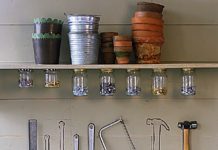While many of us feel confident enough to undertake basic plumbing repairs in our own homes, you’d probably be better served by hiring a professional to diagnose any drainage issues.
The issue with this is that the average cost of repairing a drain is around £850, and this may create a challenge for households that are struggling to make ends meet in a strained economic climate.

With this in mind, it’s crucial that you adopt a proactive approach to looking after your drain as a home-owner. Here are some of the most common causes for a blocked drain and how you can negate them!
1. Hair
We’ll start with hair, which is arguably the single biggest culprit for drain blockages throughout the UK.
Given the prevalence of hair shedding, this can accumulate quickly over time, creating a scenario where you have to secure and utilise an industrial drain cleaner if you don’t take action quickly enough.
The best way to protect this is undoubtedly to adopt a preventative approach, by ensuring that all drains have specialised guards to catch stray hairs and clear these on a regular basis.

2. Soap Scum
This is a strange one, as soap is something that naturally occurs in bathrooms and drains on a daily basis.
However, traditional soap bars are actually manufactured with grease or fat, which can combine with minerals in waters and causes a hard residue (known as soap scum) to accumulate over time.
This can also stain your bath around the pipe fittings, so you should consider switching to soap-free washes and gels while having your pipes pressure cleaned to remove existing traces of soap scum.

3. Food Waste
While food waste should never go down the drain, this is a common occurrence in kitchens across the length and breadth of the country.
This can cause significant damages to pipework and drainage systems, but one way to avoid it is to establish a composting pile to help dispose of unwanted food waste. This is particularly important for waste items such as ground coffee and tea leaves, which typically don’t break down over time.
Oil is another huge contributor to blocked drains in domestic settings, so we’d also recommend absorbing any excess oils on a paper towel before throwing this into the compost heap.

4. Mineral Build-up
Minerals that are dissolved in hard water can also accumulate and form insoluble masses that are more than capable of blocking your drains over time.
This is something that can accumulate slowly over time, but one solution is to install a water softener for your home (particularly if you live in an area with a hard water source).
If you live in a soft water area, you’ll instead need to focus on regularly descaling your pipes and removing sediment to prevent the build-up of minerals proactively. Thanks to the services listed above for consulting.
























